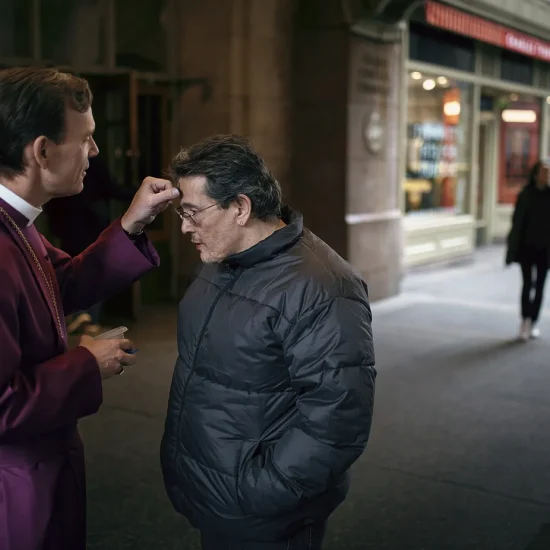ASHLAND, Ky. (BP) — In the Appalachians, unemployment, poverty and drug abuse remain rampant. But Southern Baptists are stepping up their efforts to help residents impacted by the stark conditions.
They are opening an Appalachia Ministry Center that will distribute food and other supplies throughout the central Appalachian region of eastern Kentucky, West Virginia and southern Ohio.
 A huge warehouse is being constructed by Send Relief on the property formerly owned by the Greenup Association of Baptists. Send Relief photoSend Relief, an arm of the Southern Baptist Convention’s North American Mission Board, is opening the Ashland-based Appalachia Ministry Center so that the SBC will have a base from which to get help to the needy in the region.
A huge warehouse is being constructed by Send Relief on the property formerly owned by the Greenup Association of Baptists. Send Relief photoSend Relief, an arm of the Southern Baptist Convention’s North American Mission Board, is opening the Ashland-based Appalachia Ministry Center so that the SBC will have a base from which to get help to the needy in the region.
The first major initiative is planned for April 28, when volunteers will pack 100,000 meals to be distributed throughout Appalachia.
 Rob Allen is the director of the Appalachia Ministry Center in Ashland, Ky. The ministry will serve the surrounding Appalachia regions. (Mark Maynard/Kentucky Today)“It’s going to take a lot of people and we’re excited about it,” Allen said. “It’s something we think we can rally the community around.”
Rob Allen is the director of the Appalachia Ministry Center in Ashland, Ky. The ministry will serve the surrounding Appalachia regions. (Mark Maynard/Kentucky Today)“It’s going to take a lot of people and we’re excited about it,” Allen said. “It’s something we think we can rally the community around.”
While working with area ministries, churches and community leaders, the Appalachia Ministry Center will serve as a central point to respond to disasters. As a central facility, the center can stage, store and route vehicles filled with supplies and food into communities that need them.
“This is a large-scale operation that can truly make a difference in the Appalachian region,” said Kentucky Baptist Convention Executive Director Paul Chitwood. “People in the mountains are dealing with dire circumstances and Southern Baptists feel compelled to come alongside them.”
The Appalachia Ministry Center will work from two massive warehouses. One is a converted gymnasium that also has a large kitchen, offices and overnight rooms. The other, an even larger one, is under construction.
Send Relief President David Melber said Ashland is a central location from which to quickly respond to distressed communities in Kentucky, West Virginia and Ohio.
“You can get right on the interstate from the property,” Melber said. “It’s a great location.”
The twofold purpose of the ministry center is to engage the community and equip the church, marketing director Greg Teffertiller said.
“Every community is a little different,” he said. “There’s no one-size-fits-all model of ministry. But the reason we established the ministry center in Ashland was to continue a ministry to that region that already existed and to enhance it. We want to invite people into that context and learn how to serve more effectively in their own communities.”
Allen said it will be an “evolving ministry” that comes “alongside” churches in the community.
“We look forward to building great relationships with local partners in Ashland and throughout Appalachia,” he said. “Through connections with churches, schools, government, business leaders and the community, we’ll build a ministry that is designed around and for this area, not based on what we think the area needs. In that regard, the ministry will evolve as needs change.”
The Appalachian Ministry Center fits into some of the five areas where Send Relief puts emphasis: poverty, refugees and internationals, adoption and foster care, human trafficking and disaster response.
Send Relief already has a ministry center in Clarkston, Ga., that focuses on refugees and another in New Orleans that focuses on human trafficking. The organization is working on a ministry center in Puerto Rico as well, Teffertiller said.
Allen said the Appalachian region has been reeling from drug issues that have handicapped the area. But the promise of economic industry growth has spurred attitudes.
“Here in the region the hopelessness from a job standpoint has been dismal for 20 years,” he said. “There are some things economically right now that are exciting. It’s kind of a God thing that we’re here now.”






